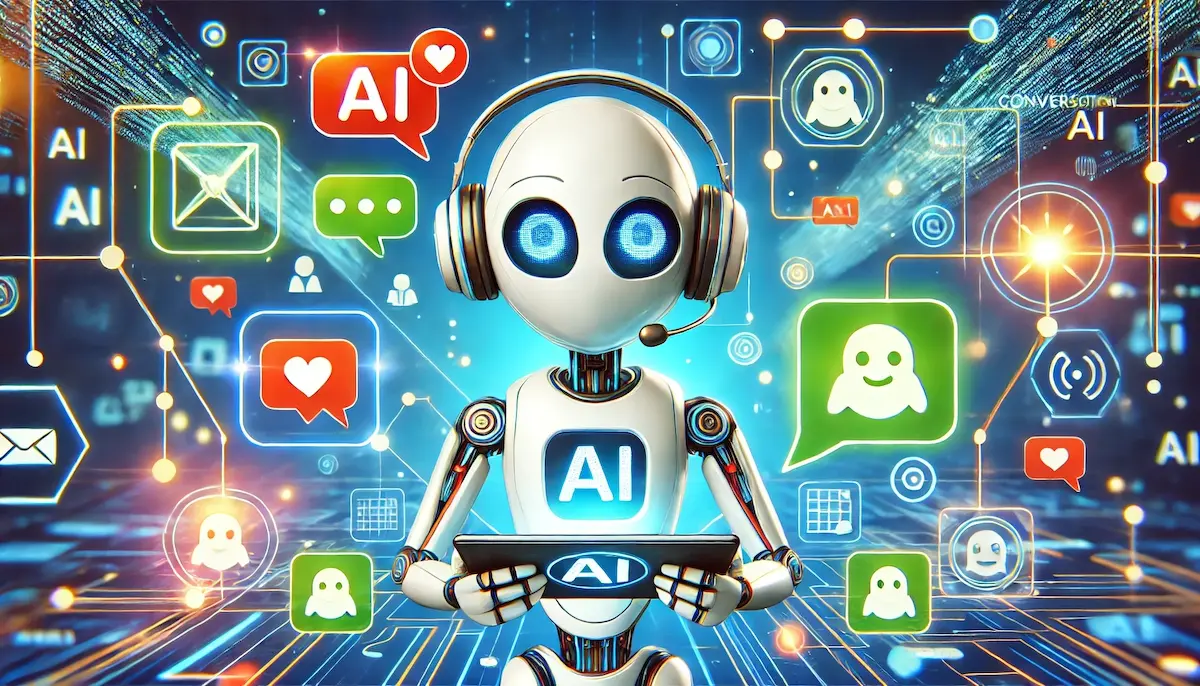Conversational AI is at the forefront of technological advancements, revolutionizing the way humans interact with machines. From customer service chatbots to virtual personal assistants, conversational AI systems enable seamless and natural communication between humans and computers. This technology leverages artificial intelligence, natural language processing (NLP), and machine learning to understand, process, and respond to human language.
What is Conversational AI?
Conversational AI refers to the use of artificial intelligence technologies to create systems that can engage in human-like dialogue. These systems can understand text and voice inputs, interpret their meaning, and respond in a way that is contextually relevant. Conversational AI can be found in various applications, including customer service bots, virtual assistants, and interactive voice response (IVR) systems.
Key Components of Conversational AI
Conversational AI systems consist of several key components:
- Natural Language Processing (NLP): NLP is a field of AI that focuses on the interaction between computers and humans through natural language. It involves the processes of understanding, interpreting, and generating human language.
- Machine Learning (ML): ML algorithms enable conversational AI systems to learn from interactions, improve over time, and adapt to new inputs without being explicitly programmed.
- Speech Recognition: Converts spoken language into text, enabling voice-based interactions.
- Natural Language Understanding (NLU): Analyzes and comprehends the meaning behind user inputs, including context, intent, and sentiment.
- Natural Language Generation (NLG): Produces human-like responses based on the understanding of the input.
- Dialogue Management: Controls the flow of conversation, ensuring coherent and contextually appropriate interactions.
Benefits of Conversational AI
Implementing conversational AI offers numerous advantages:
- Enhanced Customer Experience: Provides instant, accurate, and personalized responses, improving customer satisfaction and engagement.
- 24/7 Availability: Conversational AI systems can operate around the clock, providing support and information at any time.
- Cost Efficiency: Reduces the need for human agents, lowering operational costs for businesses.
- Scalability: Can handle a large volume of interactions simultaneously, ensuring consistent service even during peak times.
- Continuous Improvement: Learns from every interaction, continuously improving its accuracy and performance.
Use Cases for Conversational AI
Conversational AI can be applied across various industries and scenarios:
- Customer Support: Handling inquiries, troubleshooting issues, and providing information through chatbots and IVR systems.
- E-commerce: Assisting customers with product searches, recommendations, and purchase processes.
- Healthcare: Scheduling appointments, providing health information, and offering patient support.
- Banking and Finance: Managing account information, processing transactions, and providing financial advice.
- Education: Offering tutoring, answering questions, and providing study resources.
Implementing Conversational AI
To successfully implement conversational AI, organizations should consider the following steps:
- Define Objectives: Clearly outline the goals and use cases for the conversational AI system.
- Choose the Right Platform: Select a conversational AI platform that meets your needs and integrates well with your existing systems.
- Design Conversational Flows: Create natural and intuitive dialogue flows that guide users through interactions.
- Train the System: Use relevant data to train the AI, improving its ability to understand and respond to user inputs accurately.
- Monitor and Improve: Continuously monitor performance, gather feedback, and make necessary adjustments to enhance the system’s capabilities.
Conclusion
Conversational AI is transforming the way we interact with technology, offering seamless, efficient, and natural communication. By leveraging AI and NLP, conversational AI systems provide enhanced customer experiences, improve operational efficiency, and continuously learn and adapt to new inputs.
Blockfine thanks you for reading and hopes you found this article helpful.
